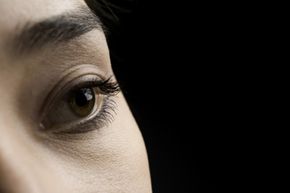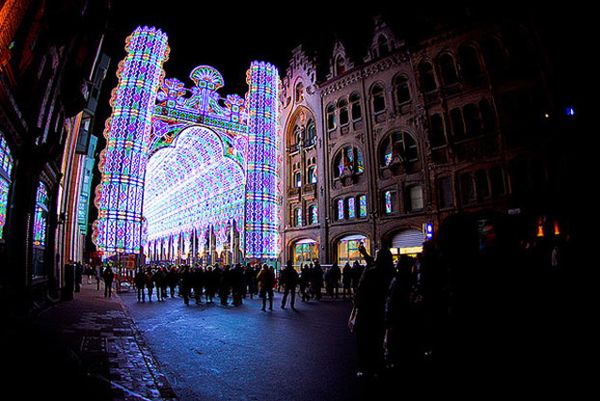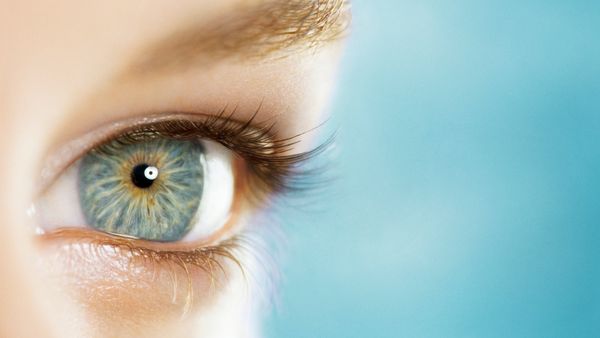One of the most amazing things about human vision is the incredible range it has. We can see in very bright sunlight, and we can also see in nearly total darkness. If you spend much time working with a camera, you know how amazing this range is. Film that works well outdoors is nearly useless indoors, and vice versa. The range that our eyes have comes from three different parts of the eye:
Pupil The pupil contracts and expands depending on the amount of light, and can physically block the amount of light entering the eye in bright situations.
Advertisement
- Rod and cone cells in the retina - Our eyes sense light with two different types of cells: rods and cones. Cone cells can perceive color in bright light. Rod cells perceive black and white images and work best in low light.
- Rhodopsin - Rhodopsin is a chemical found in the rods.
Rhodopsin is the key to night vision -- it is the chemical that the rods use to absorb photons and perceive light. When a molecule of rhodopsin absorbs a photon, it splits into a retinal and an opsin molecule. These molecules later recombine naturally back into rhodopsin at a fixed rate, and recombination is fairly slow.
So, when you expose your eyes to bright light, all of the rhodopsin breaks down into retinal and opsin. If you then turn out the lights and try to see in the dark, you can't. The cones need a lot of light, so they are useless, and there is no rhodopsin now so the rods are useless, too. Over the course of several minutes, however, the retinal and opsin recombine back into rhodopsin, and you can see again.
A fun fact: The retinal used in the eye is derived from vitamin A. If a person's diet is low in vitamin A, there is not enough retinal in the rods and therefore not enough rhodopsin. People who lack vitamin A often suffer from night blindness -- they cannot see in the dark.
Advertisement


